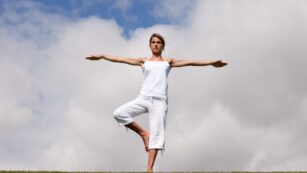In today’s fast-paced world, the quest for balance has never been more critical. Many find themselves juggling work, family, and personal obligations, often at the expense of their well-being. Balanced living therapy emerges as a beacon of hope, offering a pathway to harmony and fulfillment. This holistic approach integrates mental, emotional, and physical health, empowering individuals to lead more centered and satisfying lives.
Balanced Living Therapy
 Balanced living therapy offers a comprehensive framework for well-being by targeting the interplay between mind, body, and spirit. It uses tailored methods to address unique challenges facing individuals. Key components include mindfulness, nutritional guidance, and stress management. Mindfulness, a central element, encourages presence and awareness. By incorporating mindfulness practices, individuals can enhance self-awareness and emotional regulation.
Balanced living therapy offers a comprehensive framework for well-being by targeting the interplay between mind, body, and spirit. It uses tailored methods to address unique challenges facing individuals. Key components include mindfulness, nutritional guidance, and stress management. Mindfulness, a central element, encourages presence and awareness. By incorporating mindfulness practices, individuals can enhance self-awareness and emotional regulation.
Nutritional guidance, another focal point, involves understanding food’s impact on mental and physical health. Balanced living therapy provides strategies for developing healthier eating habits that contribute to energy and mental clarity. Stress management techniques equip individuals with tools to handle life’s pressures effectively, decreasing anxiety and improving overall health.
This therapy prioritizes individualized strategies, recognizing that each person’s journey is unique. Practitioners work closely with clients, helping them identify personal goals and values. By aligning behaviors with personal values, individuals can experience greater fulfillment and contentment. This approach fosters strength and adaptability, promoting a life that aligns with one’s true self and leading to a more harmonious existence.
Key Principles of Balanced Living Therapy
Mindfulness, Awareness & Emotional Regulation
 Mindfulness involves maintaining attention to the present moment, significantly impacting well-being (Kabat-Zinn, 2023). It encourages individuals to observe without judgment, leading to increased self-awareness. Techniques such as meditation and deep breathing foster a deeper connection to one’s thoughts and emotions. Practicing mindfulness helps individuals manage stress more effectively and develop healthier responses to life’s challenges.
Mindfulness involves maintaining attention to the present moment, significantly impacting well-being (Kabat-Zinn, 2023). It encourages individuals to observe without judgment, leading to increased self-awareness. Techniques such as meditation and deep breathing foster a deeper connection to one’s thoughts and emotions. Practicing mindfulness helps individuals manage stress more effectively and develop healthier responses to life’s challenges.
Emotional regulation entails understanding and managing one’s emotional responses (Gross, 2023). This principle equips individuals with skills to control and express emotions appropriately. Techniques like cognitive restructuring and relaxation exercises can aid in moderating emotional reactions. By enhancing emotional intelligence, individuals reduce stress and improve interpersonal relationships, fostering well-being and resilience.
Techniques Used in Balanced Living Therapy
Balanced living therapy employs a range of techniques to support holistic well-being. Mindfulness practices, such as meditation and deep breathing, encourage individuals to focus on the present moment and develop greater self-awareness. These practices enhance emotional regulation by helping individuals become conscious of their emotional responses and manage them effectively.
 Cognitive behavioral techniques aim to restructure thought patterns. By identifying negative beliefs, individuals can replace them with more positive, realistic perspectives. This approach boosts emotional health and reduces stress by promoting cognitive resilience.
Cognitive behavioral techniques aim to restructure thought patterns. By identifying negative beliefs, individuals can replace them with more positive, realistic perspectives. This approach boosts emotional health and reduces stress by promoting cognitive resilience.
Nutritional counseling addresses the connection between diet and mental health. Therapists guide clients in understanding how food choices impact energy and mental clarity, fostering healthier eating habits. This not only supports physical health but also enhances mood and cognitive function.
Stress management tools include progressive muscle relaxation and guided imagery. These techniques equip individuals with strategies to deal with life’s challenges, effectively reducing anxiety and enhancing overall well-being.
Finally, personalized lifestyle planning integrates these techniques to align with individual goals and values. By creating unique strategies for each client, therapists enable sustainable lifestyle changes that foster a harmonious and balanced existence.
How to Integrate Balanced Living Therapy Into Daily Life
Embracing balanced living therapy involves making conscious choices that align with one’s values and lifestyle. Individuals can start by incorporating mindfulness practices like meditation or deep breathing into their daily routines to enhance self-awareness and emotional regulation. Prioritizing nutritional guidance helps in understanding the impact of food on mental and physical health, leading to healthier eating habits. Additionally, adopting stress management techniques such as progressive muscle relaxation or guided imagery can significantly reduce anxiety and improve overall well-being. By integrating these personalized strategies, individuals can cultivate a more harmonious and fulfilling life, ultimately achieving a sustainable balance that resonates with their personal values and goals.

